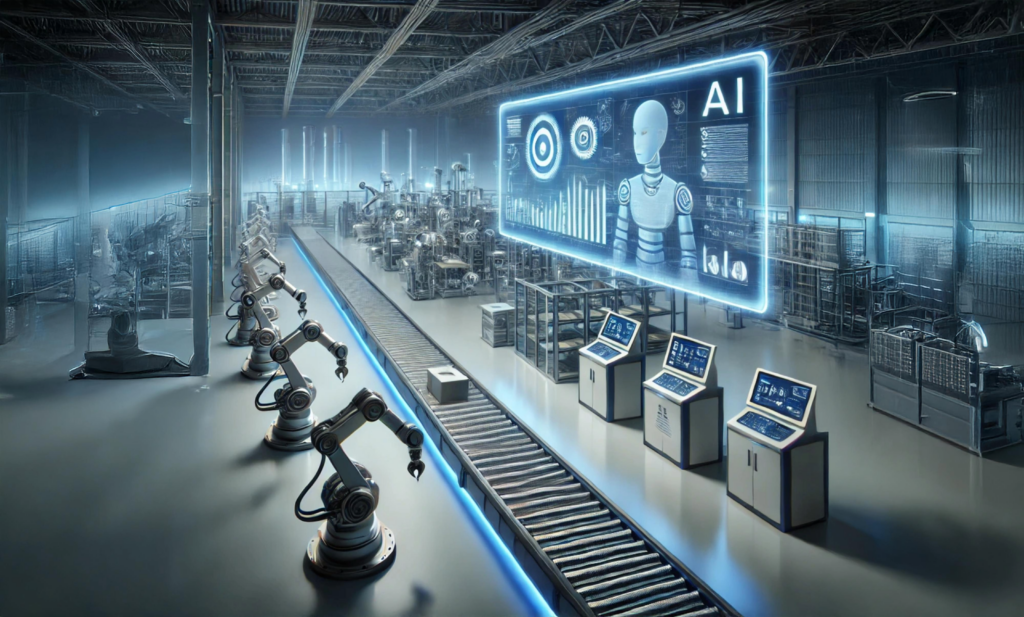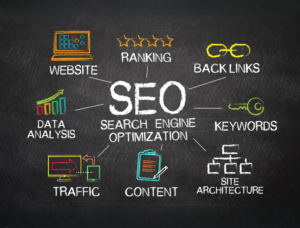Manufacturers worldwide are constantly seeking ways to reduce costs, increase efficiency, and remain competitive. With rising operational expenses and labor shortages, businesses are turning to AI automation as a solution. One of the most impactful applications of AI in manufacturing is the use of AI Agents—not just for customer support but also for streamlining internal processes, reducing downtime, and optimizing sales workflows.
In this article, we explore how AI Agents help manufacturers cut costs by up to 30%, backed by real-world case studies and best practices for implementation.
How AI Agents Reduce Costs

1. Labor Cost Savings Through Automation
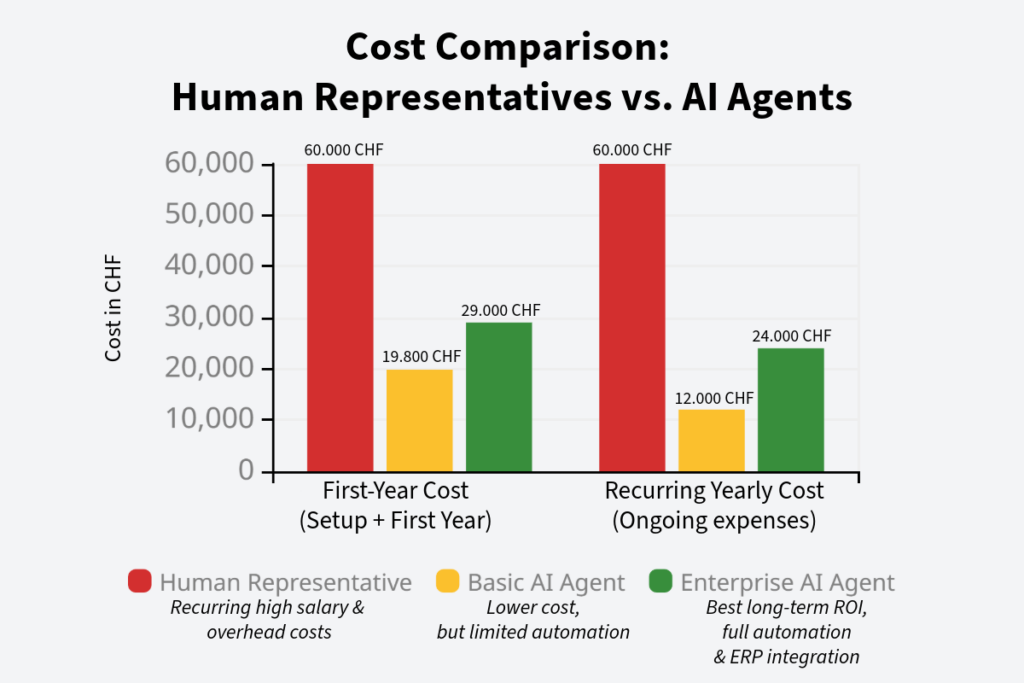
One of the most immediate ways AI Agents reduce costs is by automating repetitive, labor-intensive tasks. Traditionally, manufacturers rely on human agents to handle customer inquiries, technical support, and lead qualification. However, Agents can take over many of these functions, significantly lowering labor expenses.
Key Benefits:
- 24/7 Availability: Agents provide round-the-clock support without overtime costs.
- Faster Response Times: Reduce waiting times for customers and vendors, improving efficiency.
- Fewer Human Agents Required: A Agent can handle hundreds of interactions simultaneously, reducing the need for large customer service teams.
Example: Klarna implemented AI Agents and reduced their customer support team by 60%, saving $14.7 million annually.
2. Improved Production Efficiency & Reduced Downtime
In manufacturing, equipment downtime is one of the biggest cost drivers. AI Agents integrated with predictive maintenance systems can prevent unplanned downtime by:
- Sending real-time alerts about potential machine failures.
- Automating maintenance scheduling based on sensor data.
- Assisting technicians with troubleshooting guides.
Case Study: Siemens implemented AI-driven predictive maintenance and reduced unexpected downtime by 25%, translating to millions in annual savings.
3. Enhanced Lead Generation & Sales Process Optimization
For B2B manufacturers, the sales cycle is long and complex. Agents streamline the process by:
- Qualifying leads instantly based on predefined criteria.
- Collecting RFQs (Request for Quotes) and forwarding them to the right sales teams.
- Providing instant pricing and availability information to customers.
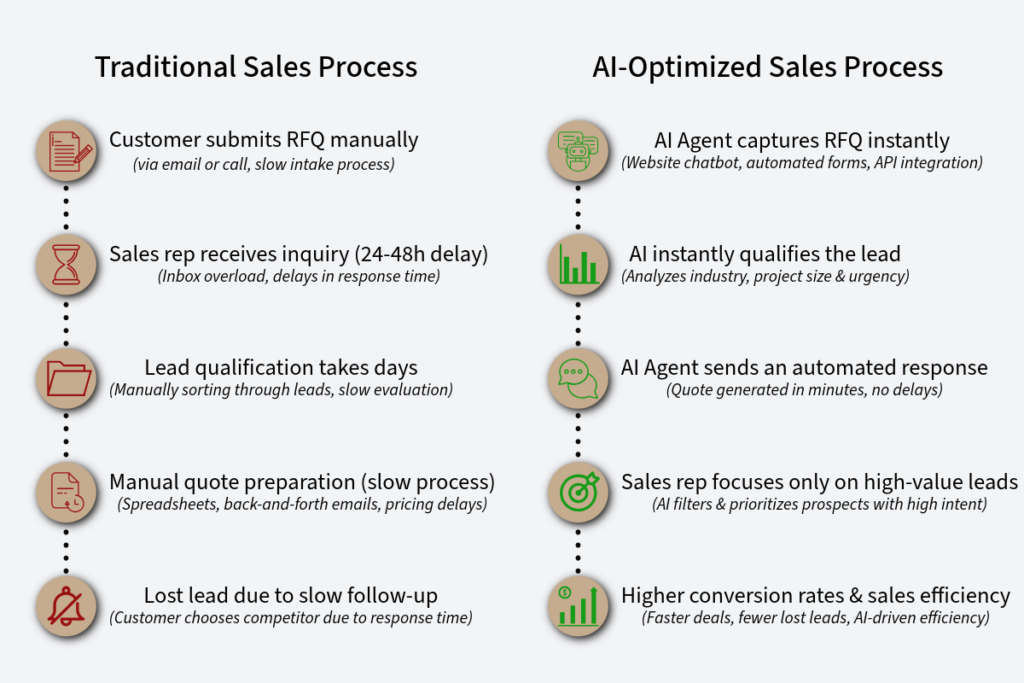
Example: A precision parts manufacturer integrated a Agent on its website, leading to a 40% increase in qualified leads while cutting lead acquisition costs by 20%.
4. Lower Inventory & Supply Chain Costs
AI Agents can assist in managing inventory by:
- Monitoring stock levels and placing automatic restock orders.
- Providing suppliers with real-time demand forecasts, reducing excess inventory costs.
- Handling logistics inquiries, ensuring smoother supply chain operations.
By integrating AI Agents with ERP systems, companies can streamline procurement, inventory management, and logistics, leading to cost reductions.
Real-World Case Studies & Data
Several studies highlight the cost-saving impact of AI Agents in manufacturing:
- Dialzara found that Agents reduce customer service costs by up to 30% while improving response times.
- Ataccama reported that AI-powered supply chain automation led to a 15% reduction in inventory costs.
- Partsimony showcased a manufacturing firm that saved $500,000 annually by automating internal communications with Agents.
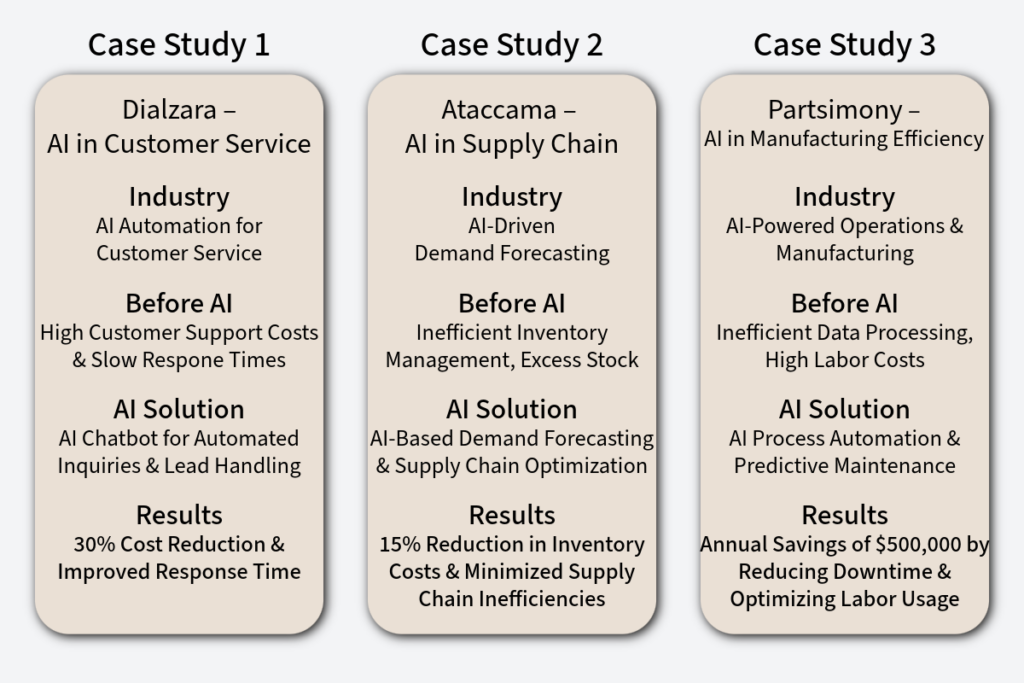
Implementation & Best Practices
For manufacturers looking to adopt AI Agents, the following best practices can maximize ROI:
1. Define Clear Goals
- Identify key areas where Agents will provide the most impact (customer service, production, lead gen, etc.).
- Set measurable KPIs, such as response time reductions or lead conversion improvements.
2. Choose the Right Agent Technology
- Ensure the Agent can integrate with ERP, CRM, and supply chain systems.
- Opt for solutions with NLP (Natural Language Processing) for better user interactions.
3. Train & Optimize the Agent
- Continuously update its knowledge base with new FAQs and troubleshooting guides.
- Use analytics to track Agent performance and improve accuracy.
4. Promote Agent Usage
- Train employees and customers on how to interact with the Agent for maximum efficiency.
- Implement a hybrid model, where AI handles routine tasks while escalating complex cases to human agents.
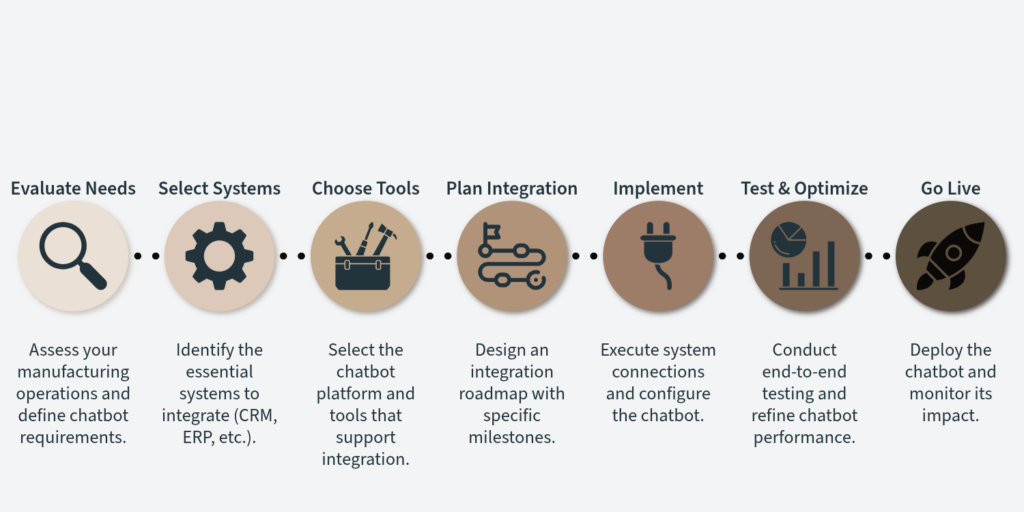
Conclusion
AI Agents are revolutionizing the manufacturing industry by reducing costs, enhancing efficiency, and improving customer engagement. By automating repetitive processes and integrating with existing systems, companies can cut operational expenses by up to 30%.
Are you ready to implement an AI Agent for your manufacturing business? Download our Agent Implementation Checklist to get started or schedule a free consultation today.
